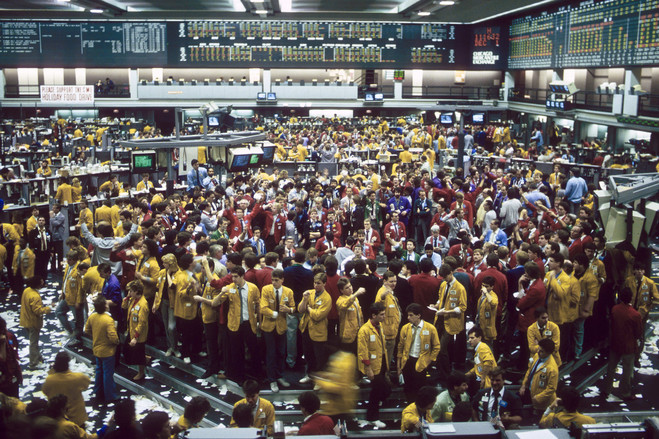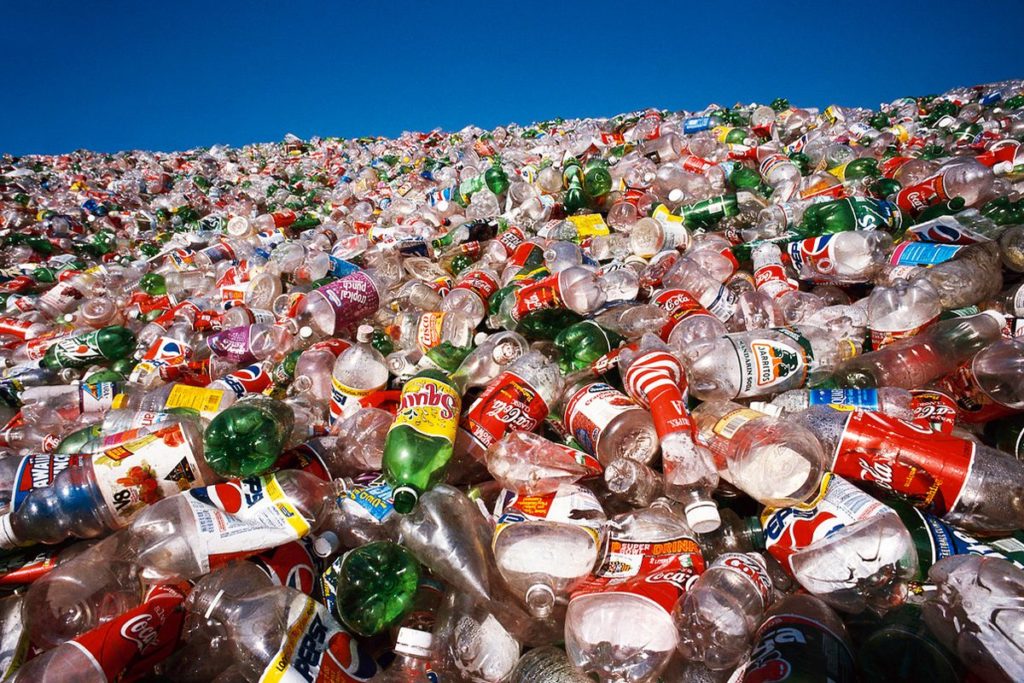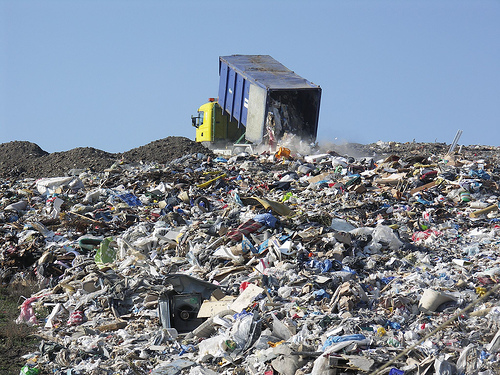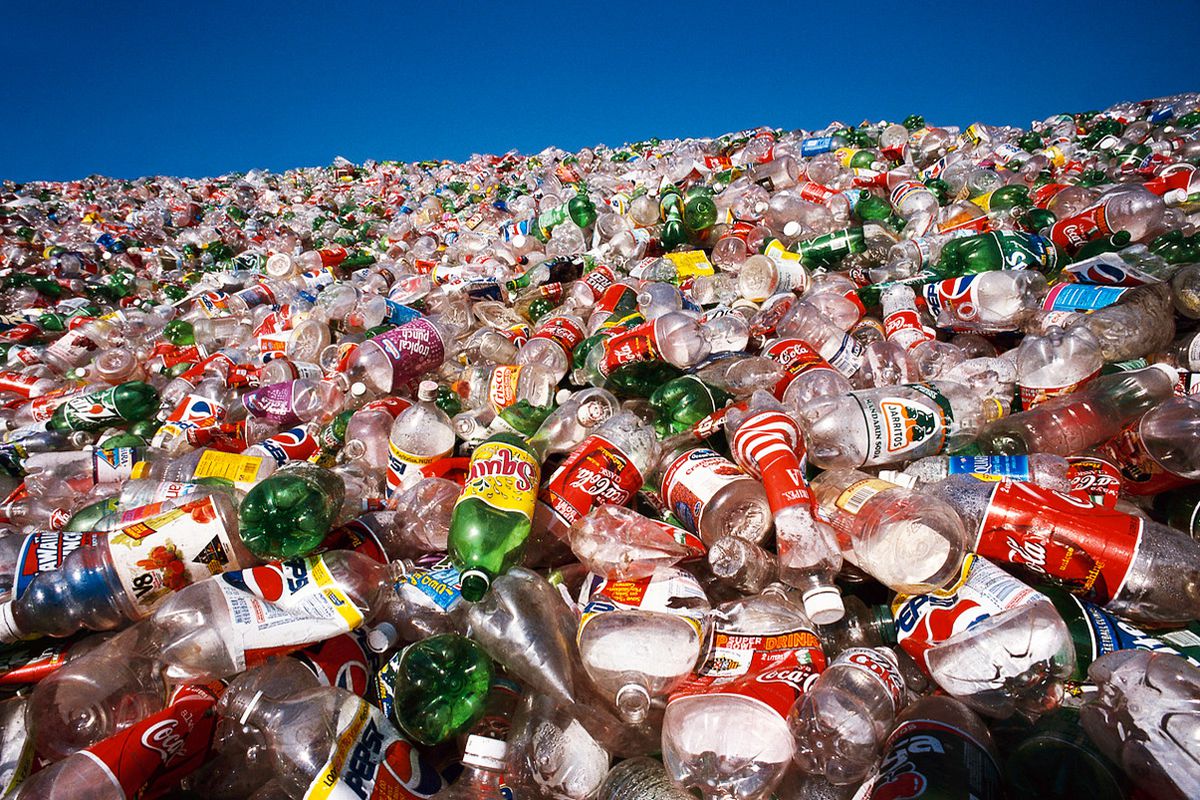For the past year my kids cluck disapprovingly whenever they see me drinking through a plastic straw and ask, “why do you hate turtles so much?” The connection, for those of you who don’t speak teen girl, is they are signaling to me their concern for unnecessary plastic waste, especially as it shows up dumped in our waterways and oceans, presumably hurting Tommy the Turtle (a fictional character I made up just now.)

Since plastic straws represent just 0.03% of American plastic waste that ends up in the ocean, according to a brief by Rachel Meidl of Rice University’s Baker institute for Public Policy, my kids’ concern is focused on the wrong thing. Because, you know, kids.
On the other hand, there is a global financial and environment crisis going on in recyclables. In this column and a few to follow, I will describe what – beyond the plastic straw and Tommy the Turtle – we should know about that global crisis and its linkages to the complex financial markets of recycling.
We tend to think of recycling as interesting to households who want to reduce carbon emissions and protest over-logging of the rainforest.
But another important way – maybe the more sophisticated way – of understanding recycling is to see it fundamentally as a commodities market. Professionals in the recycling industry operate their businesses in a sophisticated financial market for generating four physical commodities, which happen to be second-hand paper, metal, plastic and glass.

To the extent we think about commodities markets, we might conjure an image of aggressive guys in trading pits in the Chicago Mercantile Exchange shouting and signaling to each other as pork belly futures crash or soybeans soar, or maybe as quantitative traders at their computers bid up the price of West Texas Intermediate Crude following a drone attack on Saudi refineries.
I’m less interested in a cartoon Tommy the Turtle than I am in the financial linkages between sophisticated commodities markets and the big municipal bin I set out on my curb once a week.

In speaking with experts in the past few weeks, I wanted to learn about how at the global and national level these commodity markets have evolved in recent years, and also at my household level what I’ve been missing when it comes to my bin. And also about the municipal contracts and programs that link my curbside bin to government revenue and then further link to global markets. In this column and a few to come, I’ll pass on what I’ve learned.
But first, the global market for recyclable commodities got a massive shock at the end of 2017, with the situation still evolving in September 2019.
China announced a new program called “National Sword” in 2017 in which it would not import 24 types of waste, including many mixed paper and plastic products, starting in March 2018. A further list of 16 more items, including many metals, will be banned from import by the end of 2019. This ban meant that a huge proportion of the recyclable commodity producers in the US and Europe suddenly lost their primary buyer.

The China bans allow for the importation of “clean” plastics and metals, but ceased the importation of what people in the industry call contaminated commodities, or mixed materials.
Even after the 2017 policy change, China remained open to highly pure or homogenous paper, plastics and metals, but not the mixed, dirty and hard to handle stuff it had previously bought from the United States and Europe.
Underlying this China ban is a first key lesson of the economics of the recycling industry: Demand, and prices, are highly driven by the purity of the commodity.
Purity in this market means the homogenous consistency of one type of resource. If a recycler can cleanly separate any second-hand material – whether it be plastic, metal, paper, or even glass – industrial buyers will pay a premium for that commodity’s purity.
Mixed materials by contrast, whether blended with other materials types or contaminated by non-recyclables or worse, go for the lowest prices, if they will be bought at all. By 2019 the tons of scrap plastic imported to China fell to less than 1% of 2017 levels.
Imports of plastic waste from the US and Europe to Indonesia, Malaysia, Philippines, Thailand, and Vietnam briefly quadrupled in 2018, as plastic exporters scrambled to find alternatives to the China market. But those alternative Southeast Asian markets have proven unable to handle the volumes coming from the US and Europe. Recyclers in the US are now awash in secondary dirty plastic, with no market-based outlet for their commodity. Much of that is headed for landfills.
The price of products like cardboard and what the industry calls “mixed paper” has also plummeted.
Recycling experts draw a straight line between the 2017 China ban and a fundamentally altered US municipal recycling market, compared to just two or three years ago. While not the only cause, the ban provided a major shock to the system.
Some headline effects:
US cities that used to earn a profit on their recycling programs a few years ago now lose money every month. Some cities have either cut back part of their programs already, or are considering cutting back on their programs. All cities will be forced to reckon with a greatly altered financial consequence of having a recycling program, since what used to help the bottom line now loses money.

Far more waste in the US is headed for landfills or the incinerator compared to just two years ago.
In a subsequent column I’ll describe the specific financial effects on Texas cities like Houston and San Antonio and other cities in Texas.
Later, I’ll also describe all the things I’ve been doing wrong with my own recycling bin, and maybe you have been as well.
When we get it wrong, we contaminate or reduce the value of the natural stream of secondary commodities our households produce. Millions are at stake for our city’s budgets, and billions for the country.
A version of this post ran in the San Antonio Express News and Houston Chronicle.
Please see related posts
Recycling Part II – Commodity Market Price Drops (forthcoming)
Recycling Part III – Municipal Contract (forthcoming)
Recycling Part IV – Household Mistakes (forthcoming)

Post read (257) times.





